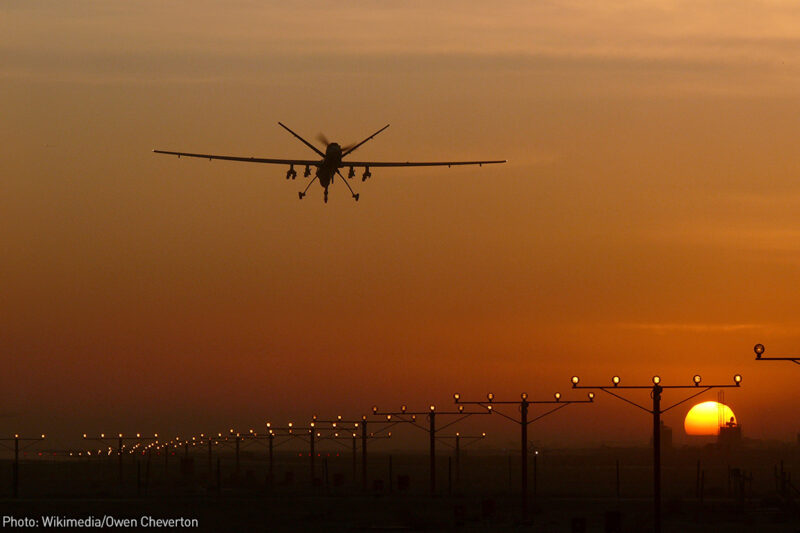
This was originally published by .
Is it lawful for the government to use armed drones to strike at suspected terrorists and militants? Yes, in some circumstances it is. The question isn't whether, but when.
U.S. drone strikes have killed , including hundreds of civilians. No one outside the government has a clear idea of who's being killed, or why. Though anonymous intelligence officials , the government doesn't usually release information about individual drone strikes — not about the targets, and not about civilian casualties.
The government has refused to release the Justice Department memos that are effectively "the law" of the drone program. , the CIA's position in court was that national security precluded the agency from confirming or denying that there was a drone program at all.
President Obama's remarks on Thursday make clear that even those inside the government don't always know who the drone strikes are killing. The United States killed two innocent hostages it didn't know were there; the same strike killed someone whom the government only later learned was an American. Another strike also killed an American, though again the government did not learn this until later.
The fact that the government killed people inadvertently, or without knowing who they were, doesn't itself establish that the strikes were unlawful. But it's surely reasonable to ask whether drone operators should be pulling the trigger when they know so little about who's in their sights.
The United States, like every other country, has the right to use lethal force in wartime, and it has the right, even outside the context of actual hostilities, to defend itself against imminent threats.
But Thursday's disclosures raise new and deeply concerning questions about whether the U.S. is complying with and its obligations under international law, including the obligation to .
Ironically, the disclosures are also a reminder of how little we know about a program that has been responsible for so many deaths.

